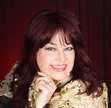The Type of Book it Hurts to Read
It has been a while since I viewed writing with the thought that it is right or wrong. Since I have worked with the Chicago Manual of Style, AP Style, and the New York Times Manual of Style, I learned that writers disagree on the proper way to write things. Do I spell out forty-five or use the number? Which manual of style are you using?
What makes a book painful to read is when its language, organization, or punctuation usage loses the reader. In some cases, if the writing has errors, then misspellings and improperly used punctuation can torture the reader. Advanced writers may ramble in an abstract way that thwarts or bores their audience, or they may not organize their writing in such a way that it can be followed.
This is why even advanced writers need editors and proofreaders and no self-publishing author should neglect that detail. Having said this, I have read manuscripts where the author used an editor, proofreader, and Grammarly--and the manuscript had so many errors that I was stunned and little mad at the world.
Here's what you can do to avoid catastrophic reader dumping. Hire or recruit your team carefully. Have them review the book and make corrections. Then, ask someone with a writing degree to look over a couple of chapters. English teachers can do this with little effort. Journalists are trained to minimize meaningless words and get to the point.
Though many authors write because we love it, foremost in our minds we should consider the reader's experience.
Our book is our home. We are inviting our readers into it. Let us welcome them well.
What makes a book painful to read is when its language, organization, or punctuation usage loses the reader. In some cases, if the writing has errors, then misspellings and improperly used punctuation can torture the reader. Advanced writers may ramble in an abstract way that thwarts or bores their audience, or they may not organize their writing in such a way that it can be followed.
This is why even advanced writers need editors and proofreaders and no self-publishing author should neglect that detail. Having said this, I have read manuscripts where the author used an editor, proofreader, and Grammarly--and the manuscript had so many errors that I was stunned and little mad at the world.
Here's what you can do to avoid catastrophic reader dumping. Hire or recruit your team carefully. Have them review the book and make corrections. Then, ask someone with a writing degree to look over a couple of chapters. English teachers can do this with little effort. Journalists are trained to minimize meaningless words and get to the point.
Though many authors write because we love it, foremost in our minds we should consider the reader's experience.
Our book is our home. We are inviting our readers into it. Let us welcome them well.
Published on March 15, 2019 06:17
•
Tags:
authors, christina-goebel, drafting, editing, editor, organization, proofreader, proofreading, punctuation, readers, write, writing
No comments have been added yet.



